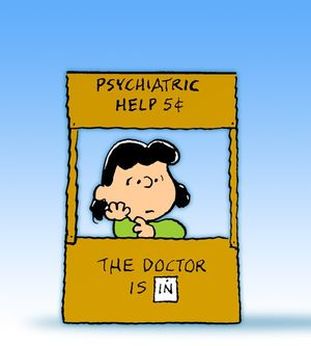
Find the whole story here.
 In the aftermath of the GermanWings tragedy, much is being made of the presence of anti-depressant medication found in pilot Andreas Lubitz' home and his visits to a psychiatrist. But is that all there is to this story? A depressed man and an opportunity to end his life? A new article in Slate urges us to think more critically than putting a label on the man that millions of others share. Find the whole story here.
0 Comments
An ex-pharmaceutical sales rep provides insight to the drug industry and the dangers of psychotherapeutic drugs. She decided to speak out when her 20 year old niece committed suicide while taking antidepressants.
Watch the interview here: https://www.youtube.com/watch?v=xTMg6vWIoLM "Did you know that our body produces its own marijuana-like compound to protect us against anxiety? A study reveals a new biological pathway that regulates this system and suggests that a drug currently in clinical trials to treat obesity might also provide an attractive way to combat anxiety disorders. "
Read more: http://www.sciencedaily.com/releases/2015/03/150302130737.htm Kevin Breel, a comedian, student, and athlete, delivered a stirring talk May 2013 at TedxYouth about the severity of depression: "... every 30 seconds, someone, somewhere in the world, takes their life due to depression.... we say we're sad, we say we're sorry, but we also say 'so what?'". The entirety of his talk, including details of his personal struggle with depression, is below. To answer Breel's posited 'so what?', here is a comic drawn by artist Erika Moen (more found at http://www.erikamoen.com) about just exactly 'so what' one of those suicides meant to her, and the impact it had on her life.
 Post-traumatic stress disorder (PTSD) has received a lot of attention in recent years particularly with regard to its impact on first-responders and young veterans returning from tours of Afghanistan and Iraq. What is the experience, however, of older veterans who served in wars decades prior, who have lived with undiagnosed PTSD for many years? Meet Ken Seybold, a 66 year-old Vietnam veteran. "He believes he was the first in his hometown of Latrobe, Pa., to enlist and the first to return from the war. 'There was no one to talk to about being in Vietnam,' he said. 'If you tried, they would say ‘Get over it. That was yesterday.’ No one else could understand what I went through.' At night, he walked the edges of his yard, sat in the garage or on his front porch, staying awake to see the sunrise. During the war, his best friend, struck in the chest by a mortar, crawled 75 feet to ask him to tell his wife he loved her. 'I felt guilty that I made it back and he didn’t,” said Mr. Seybold, who later delivered the dying man’s message." Once he was recently diagnosed with PTSD and started attending a regular therapy group with other veterans he felt relieved to know he wasn't alone in his experience. To read more about PTSD in aging veterans check out this great article from the Wall Street Journal.  A recent study published in the journal Neuropsychopharmacology, found that dose of Omega-3 fatty acids reduced symptoms of inattention in boys with and without Attention Deficit Hyperactivity Disorder (ADHD). The study found that in a small clinical trial involving boys 8 to 14 years old, parents rated their son's ability to pay attention more highly if the child's diet was supplemented for 16 weeks with the long-chain fatty acid than if he got a placebo instead. In the study, 40 subjects got an average of 650 mg per day of Docosahexaenoic Acid (DHA) and 650 mg of Eicosapentaenoic acid (EPA), two different kinds of Omega-3s, in margarine. Half the subjects had been diagnosed with ADHD and the other half were normally-developing kids. The subjects who got margarine without the Omega-3 supplement (the placebo group) were also equally divided between those with ADHD and those who had no such diagnosis. The notable finding was that, whether or not they had ADHD, boys who got the Omega-3 supplement were rated by their parents as more attentive. http://www.sci-tech-today.com/news/Omega-3-Fatty-Acids-Helps-Boys/story.xhtml?story_id=110002BUX95K  While on her psychiatry rotation, med student Natalie Wilcox, experienced first hand the stigma that surrounds psychiatric diagnoses. However, not only did she see how stigma affects patients, but she noticed that it also affects medical students and health professionals in the way they treat patients with addictions and mental illnesses, as well as the way they view and value the psychiatry profession. Read more here: "Psychiatry is Devalued: And Patients Suffer Because of It". "Instantly the man straightened up, “So you think it’s the ‘D word?’ I really don’t want that diagnosis.” I had never heard of depression referred to as the “D word,” but it definitely struck a chord with me. This man was so uncomfortable with the idea of being associated with a mental health diagnosis that he couldn’t say the name. At one facility where I rotated, psychiatric services were hidden in a corridor known as “behavioral health.” Patients with diagnosed mental health issues saw “stress management” workers, a title intended to disguise psychologists and psychiatrists. How can patients be expected to feel comfortable with a psychiatric diagnosis if clinics themselves refuse to identify the services as such? Such euphemistic doublespeak only serves to undermine the progress made in psychiatric care and reinforce the stereotypes associated with mental illness and its methods of treatment." "Marks said Joyable’s activities fall into three broad categories — educational (learning about the causes of anxiety), thought-based (recognizing and combating anxious thoughts, like in the activity described above), and behavioral (offline activities like speaking up and a meeting or getting coffee with a friend). In addition, Joyable connects customers with a coach who works with them over the phone, email, and text to offer encouragement and keep them on-track."
Read more: http://techcrunch.com/2015/03/18/joyable-launches-online-tools-to-help-you-overcome-social-anxiety/ In the world of psychiatry, having more than one psychiatric diagnosis tend to be the rule rather than the exception. Dual diagnosis, specifically refers to such occasions when patients have a mental illness such as depression or an anxiety disorder, as well as a substance use problem. For further information about what a dual diagnosis means and the best approach to treatment, check out this great infographic from http://www.recoveryconnection.org/dual-diagnosis-infographic/.
|
Description
Supporting and enhancing students' and health professionals' knowledge and understanding of mental health and psychiatry
Archives
June 2017
Categories
All
|